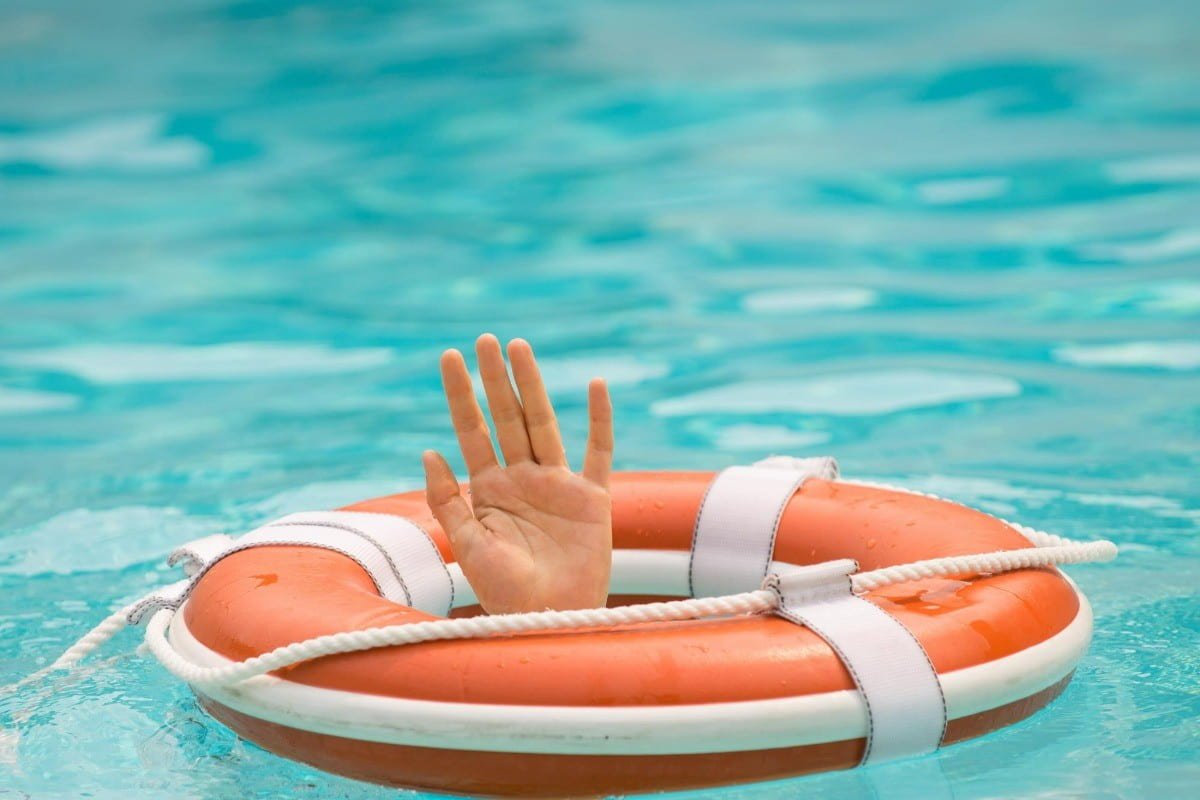Basic Training Course in Maritime Safety STCW in Barcelona
The Basic Maritime Safety Training certificate is one of the first steps that must be taken when joining the crew of a ship as a professional. Although this is initial training, it involves obtaining knowledge as important as supervising safety and possible emergencies on board a ship.
In fact, the Basic Maritime Safety Training is included among the STCW courses, so it is part of the training, certification and surveillance standards for the crew. It is a title that is issued by the General Directorate of the Merchant Navy and that, therefore, is approved and allows you to carry out professional tasks.
In this sense, it is not possible to dedicate yourself professionally to navigation without having the certification that demonstrates having completed Basic Training in Maritime Safety, regardless of the rank of the crew member and their specific functions on board the vessel.
Get now with Anclademia the STCW certificate for Basic Training in Maritime Safety, a professional title that enables you to work on boats of all types for 5 years, the validity period of the certificate.
Why is the Basic Maritime Safety Training course necessary?
The Basic Safety Training course (STCW) is aimed at all those people who want to develop their professional activity in the marine field working as a self-employed person or as an employee (contracted). To do this, they must combine this certificate with one of the official titles for the governance of existing vessels. Depending on the titles you have, you will be able to:
PER+STCW95: carry out movements of ships and low-weight goods, always without passengers.
Yacht pattern + STCW95: ship movements within the port's waters, carrying up to 6 passengers.
Yacht Captain + STCW95: you will be able to govern boats with up to 6 passengers at a maximum distance of 5 miles from the port on excursions and charters.
STCW Courses
What is the objective of the STCW Basic Maritime Safety Training course?
The objective of Basic Maritime Safety Training is to train those who take it in mastering the following aspects:
- Perform professional work on any type of boat
- Organize and supervise safety and emergency situations on board
- Obtain higher training for navigation
Course duration
When taking Basic Maritime Safety Training, it is essential to comply with the following conditions:
- 70 hours long, 45 theoretical and 25 practical
- Classroom course
- Mandatory attendance, both at theoretical and practical sessions
Requirements to Obtain the Certificate of Basic Training in Maritime Safety
The Basic Training in Maritime Safety title must accompany one of the following nautical titles if you want to work as a professional: PER, Yacht Skipper or Yacht Captain

Theoretical training
You must complete a theoretical training of 45 hours of mandatory attendance

Exam
Approve the corresponding theoretical examination.

Practices
The degree involves completing 25 hours of practical training

Medical check
A medical check-up like a driver's license
Basic Training Course in Maritime Safety STCW for €750
If you are going to dedicate yourself professionally to navigation as the owner of your boat, hired by a third party or as part of a crew (cruise ships or boats), you will need this basic maritime safety course.
- Theory (45 hours)
- Practices (25 hours)
- Online and In-Person Classes
- Test and Exams
Who is the Basic Maritime Safety Training course for?
This certificate is intended mainly for all those who intend to perform functions at a professional level on all types of civil vessels, both private yachts and merchant vessels. it's possible work obtaining only Basic Training in Maritime Safety, although in most functions larger training is required.
Only with Basic Training in Maritime Safety is it possible to perform various tasks, such as be part of the crew of a cruise ship, be a sailor without government functions, work in a yacht club, marina or marina - also as a sailor - or acting as an assistant on boats dedicated to nautical activities.
On the other hand, Basic Maritime Safety Training is required for those who wish to obtain higher qualifications such as the PPER -Professional Skipper of Recreational Boats- or some of the complements that enable PERs -Skipper of Recreational Boats-, as well as skippers or yacht captains, for certain professional tasks.
Finally, This training is the minimum required when applying for the DIM -Seafarer's Identity Document- or maritime book. Once you have obtained it, you will also be able to carry out the official medical examination required to be able to work on board, issued by the ISM - Social Institute of the Navy.
Basic Training Course Program
Personal survival techniques at sea
It consists of 10 hours of theory in the classroom and 12 hours of practice at sea. In this module you will learn everything you need to know to guarantee your survival in the event of abandoning ship: lifesaving devices, where they are and how they are used; how to act in the water, how to act when wearing a life jacket; how to stay afloat without a life jacket; main dangers for survivors, etc.
First class fire prevention and fighting
It consists of 15 hours of theory in the classroom and 7 hours of practice in the fire field. Once completed, you will have learned what the most common types and sources of ignition are, the flammable materials on a boat and the risks of them helping to spread the fire, how to detect smoke and fire and how automatic alarm systems work, as well as to manage the different extinguishing devices that you will have at your disposal on the boat.
Health training in first aid
It consists of 10 hours of theory in the classroom and 6 hours of practice on a boat, during which you will learn basic knowledge about the human body and assessment of a victim, as well as action in case of asphyxiation or cardiorespiratory arrest; hemorrhages, wounds and burns or rescue of accident victims, among others.
Personal security and social responsibilities
This module is solely theoretical and lasts 10 hours, during which you will assimilate concepts such as dangers and emergencies on board, contingency plans, emergency and alarm signals, evacuation routes, National Rescue Plan, safety practices, hot work environmental protection procedures, among others.
STCW Certificate Application
Once you have completed the training, you can request the Basic Safety Training certificate by presenting the following documentation at the Maritime Captaincy headquarters of your autonomous community:
- Certificate application form
- Photocopy of DNI, NIE or passport
- Photocopy of the course diploma according to order FOM/2296/2002
- Proof of payment of the fees corresponding to Professional and Recreational Maritime Titles

Basic Training in Maritime Safety PRICE in Barcelona
PER PRO
PER + Basic Training- Access to the Virtual Classroom
- Online Theory + In-Person Classes
- Test and Exams
- Review Classes
- Practices included motor
- Radio Practices (12 hours)
- Student Insurance
PRO Yacht Skipper
Yacht Skipper + Basic Training- Access to the Virtual Classroom
- Online Theory + In-Person Classes
- Test and Exams
- Teaching materials
- Review Classes
- Mandatory motor practices included
- Radio Practices
- Student Insurance (internships)
Yacht Captain PRO
Yacht Captain + Basic Training- Access to the Virtual Classroom
- Online Theory + In-Person Classes
- Test + Exams
- Teaching materials
- Review Classes
- Mandatory internships
- Radio Practices
- Student Insurance (Internships)
Frequently Asked Questions about Basic Maritime Safety Training STCW from Anchorage
The STCW95 Basic Training in Maritime Safety qualification provides you with basic knowledge about safety and possible emergencies on board and is the certificate required to work on vessels and searches of any type.
The training consists of 45 hours of theory and 25 hours of practice, all of which must be completed in person, although it is possible to miss up to one 10% of the theory classes as long as adequate justification is available.
The Basic Training Certificate in Maritime Safety It is valid for 5 years from the time it is obtained, and for its renewal a suitable psychotechnical certificate is required, demonstrating a minimum of one year of boarding in the last five - or three months in the last year - and paying the fees established for these purposes.
Regardless of the rest of the higher professional certificates that can be obtained to perform specific tasks of greater responsibility on board, Basic Maritime Safety Training is essential for anyone who intends to work on a vessel.
As it is a qualification that includes hours of practice, in-person attendance at the Basic Training in Maritime Safety is essential, so that There is no possibility of obtaining this degree remotely.
The Basic Training in Maritime Safety practices are divided into three modules of 12, 7 and 6 hours respectively., the first of them focusing on safety and rescue equipment, the second on fire fighting and the third on the application of first aid and management of health emergencies.
Contact us
Get in touch to sign up for our courses or to request more information about our courses.
info@anclademia.com
Phone
+34 684 165 089
Location
Port Olimpic, Barcelona

